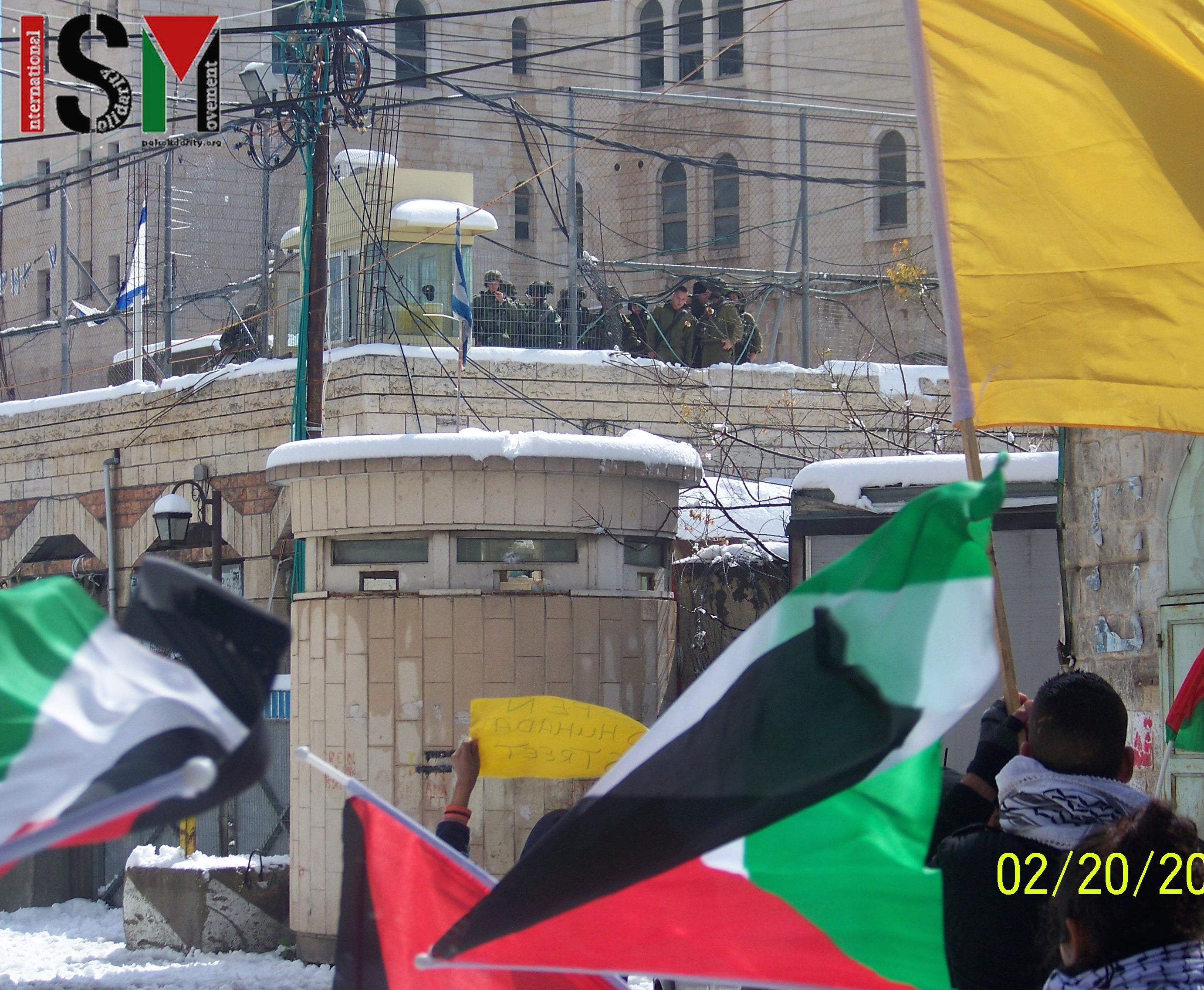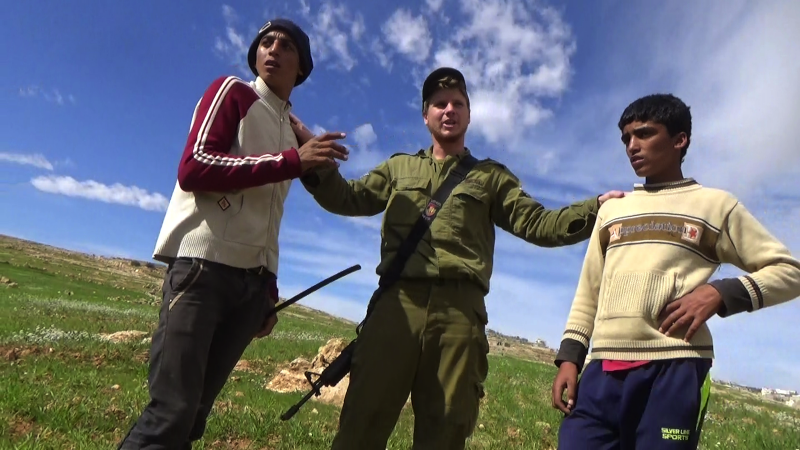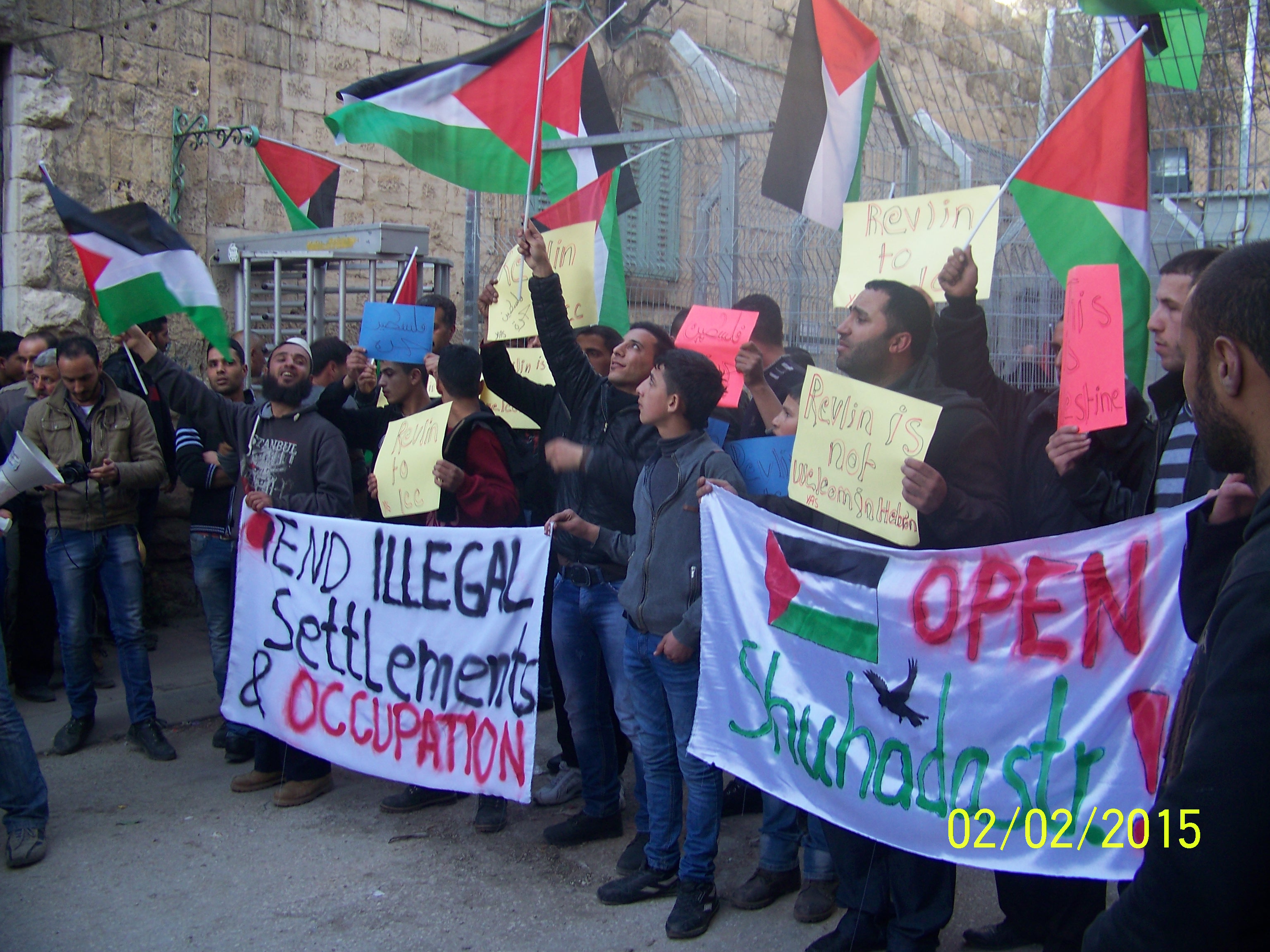Category: Hebron
-
Open Shuhada Street, demand Palestinian demonstrators
21th February 2015 | International Solidarity Movement, Khalil Team | Hebron, Occupied Palestine On February 20, Israel forces threw at least thirty stun grenades and ten tear gas grenades at a peaceful Palestinian protest. Residents of occupied Hebron (Al-Khalil) were demonstrating against the closure of Shuhada Street, a former economic centre in Al-Khalil. The street, running through the middle of…
-
Two Palestinian shepherds arrested in South Hebron Hills
8th February 2015 | Operation Dove | South Hebron Hills, Occupied Palestine On the morning of February 6, Israeli soldiers arrested two Palestinian shepherds, one of them aged sixteen. The soldiers tried to arrest another Palestinian shepherd but villagers prevented the arrest by popular nonviolent action. At about 10:40 a.m. four Palestinian shepherds were grazing their flocks…
-
Demonstrators face military violence for protesting Israeli President Rivlin’s visit
5th February 2015 | International Solidarity Movement, Khalil Team | Hebron, Occupied Palestine On Monday, February 2nd, Palestinian demonstrators faced military violence at the hands of Israeli forces in occupied Al-Khalil (Hebron). Protesters gathered in Bab Al-Zawiye, on the H1 (Palestinian administered) side of Shuhada checkpoint, to denounce Israeli president Reuven Rivlin’s visit to the illegal Israeli settlement of…



